In the annals of medical history, the advent of vaccines has been a luminous chapter, a testament to human ingenuity and the relentless pursuit of health. The swift development of COVID-19 vaccines, a feat achieved within a year of the pandemic's onset, was a pinnacle moment, a beacon of hope that seemed to herald a new era of defense against the whims of infectious diseases. Yet, as the tides of public opinion turn against public health measures, and with the nomination of Robert F. Kennedy Jr., a figurehead of the anti-vaccine movement, as a top health official, a shadow has been cast over this hopeful narrative.
The backlash against vaccines, once a symbol of scientific triumph, has now become a harbinger of potential epidemics past—measles, whooping cough, meningitis, and even polio. The specter of these diseases, once thought vanquished, looms large as public health experts and vaccine advocates warn of a confluence of factors that could lead to their resurgence. "The litany of things that will start to topple is profound," laments James Hodge, a public health law expert, foreseeing a seismic shift in vaccine law and policy.
Lawrence Gostin, a professor of public health law, echoes this grim prognosis, stating, "He’ll make America sick again." State legislators, swayed by vaccine skepticism, are poised to introduce bills that could weaken or eliminate school-entry vaccine requirements, a move that Northe Saunders, who tracks vaccine-related legislation, warns could have dire consequences. The autonomy of states to maintain existing requirements is also under threat from a Republican-controlled Congress and the potential leadership of Kennedy and former House member Dave Weldon at the Department of Health and Human Services and the Centers for Disease Control and Prevention, respectively.
Both Kennedy and Weldon have championed discredited theories linking vaccines to autism and other chronic diseases, casting doubt on the integrity of the CDC and its evidence. Their influence could lead to a chilling effect on vaccination rates, with Gregory Poland, co-director of the Atria Academy of Science & Medicine, warning that lowering vaccination rates and herd immunity would inevitably lead to the recurrence of these diseases. "One in 3,000 kids who gets measles is going to die," he states, underscoring the fatality rate and the lack of treatment for the disease.
The nomination of Kennedy is not just a political move; it is a validation of public mistrust in government health programs, according to Paul Offit, director of the Vaccine Education Center. His influence could lead to a cascade of actions that weaken national vaccination programs, from spreading misinformation to delaying FDA vaccine approvals. The potential dismantling of the National Vaccine Injury Compensation Program, which has played a crucial role in protecting vaccine manufacturers from lawsuits, could also have far-reaching implications.
The Advisory Committee on Immunization Practices, a body whose recommendations determine government funding for vaccines, could be another target. Kennedy could either abolish the committee or fill it with allies opposed to new vaccines, potentially withdrawing recommendations for established vaccines like the measles-mumps-rubella shot. This move would be a blow to the Vaccines for Children program, which provides free immunizations to over half of the nation's children.
As infectious disease threats multiply, the focus on chronic ailments at the expense of infectious disease control could be a costly mistake. The H5N1 virus, or bird flu, and the rise of mosquito-borne diseases like dengue fever, are just two examples of the growing threats. Traditional childhood diseases, too, are making a comeback, in part due to neglected vaccination. The U.S. has seen 16 measles outbreaks this year, with 89% of cases in unvaccinated individuals, and a whooping cough epidemic, the worst since 2012.
The nomination of Kennedy has sent shockwaves through the pharmaceutical industry, with the share prices of companies with significant vaccine portfolios plummeting. His influence could slow or halt new vaccine releases or sales of existing vaccines, by demanding additional post-market studies or by highlighting questionable studies that suggest safety risks.
Vaccine advocates, often outmatched in funding by anti-vaccine advocates, face an uphill battle in defending vaccination in courts, legislatures, and the public square. The absence of illness, a success of vaccines, is rarely celebrated, making vaccines a hard sell even when they are effective. The funding gap between pro- and anti-vaccine advocates is stark, with wealthy individuals funding the anti-vaccine movement, while "there hasn’t been an appetite from science-friendly people to give that kind of money to our side," laments Karen Ernst, director of Voices for Vaccines.
The nomination of Kennedy and the potential policies that could follow "bode ill for the development of new vaccines and the use of currently available vaccines," says Stanley Plotkin, a vaccine industry consultant and inventor of the rubella vaccine. The development of vaccines requires significant investment, and without the prospect of profit, commercial companies are unlikely to engage in such endeavors.
The future of vaccination in the United States is uncertain, with the potential for legislative changes at the state and federal level, and the influence of anti-vaccine sentiment in high places. The impact on public health could be long-term and serious, with the potential for outbreaks of vaccine-preventable diseases to become alarmingly common. The challenge for vaccine advocates is to mobilize and educate in the face of growing skepticism and misinformation, a task that is both daunting and essential for the health and well-being of the nation.

By Daniel Scott/Dec 13, 2024

By John Smith/Dec 13, 2024

By Lily Simpson/Dec 13, 2024
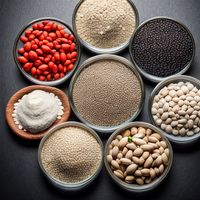
By Victoria Gonzalez/Dec 13, 2024

By Emily Johnson/Dec 13, 2024

By George Bailey/Dec 10, 2024

By Emily Johnson/Dec 10, 2024

By Samuel Cooper/Dec 10, 2024

By Olivia Reed/Dec 10, 2024

By Michael Brown/Dec 10, 2024

By Daniel Scott/Dec 9, 2024

By Grace Cox/Dec 9, 2024
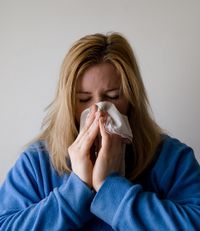
By Olivia Reed/Dec 9, 2024
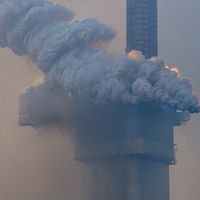
By Ryan Martin/Dec 9, 2024

By Joshua Howard/Dec 9, 2024
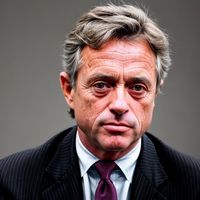
By Lily Simpson/Dec 9, 2024
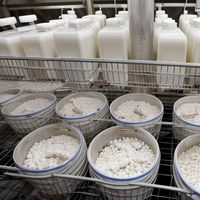
By William Miller/Dec 9, 2024

By James Moore/Dec 9, 2024

By Eric Ward/Dec 9, 2024
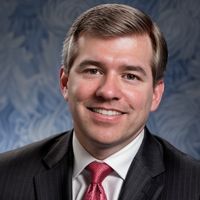
By Samuel Cooper/Dec 9, 2024